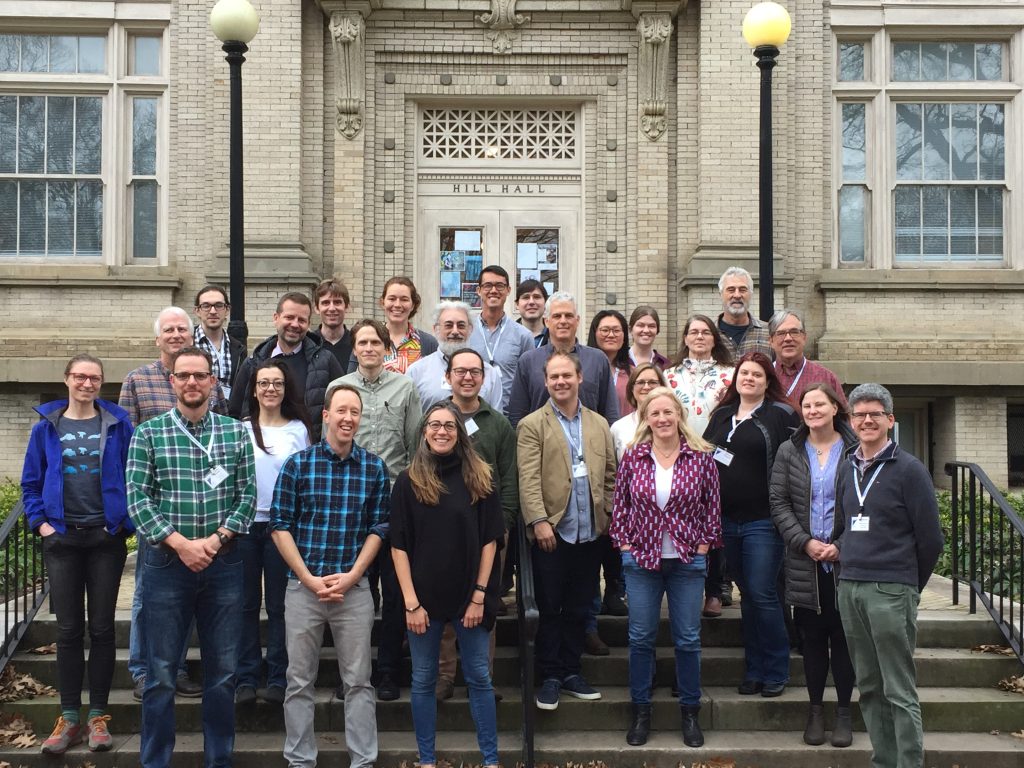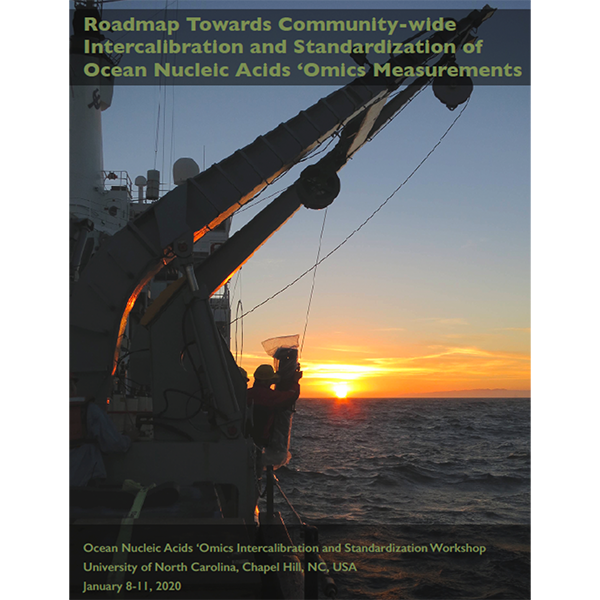The workshop on Ocean nucleic acids 'omics intercalibration and standardization was convened by the US Ocean Carbon Biogeochemistry (OCB) program, January 8-11, 2020. The goal of this workshop was to develop a focused marine microbial nucleic acid (na) 'omics intercomparison and intercalibration effort to enhance future field programs that integrate methods such as molecular barcoding, metagenomics and transcriptomics to understand the functioning of prokaryotic and eukaryotic microbes in the ocean. Initial efforts are guided, in part, by the success of the marine geochemistry community in implementing programs like GEOTRACES.
This workshop was cosponsored by OCB (NSF, NASA) and a gift from the Simons Foundation.
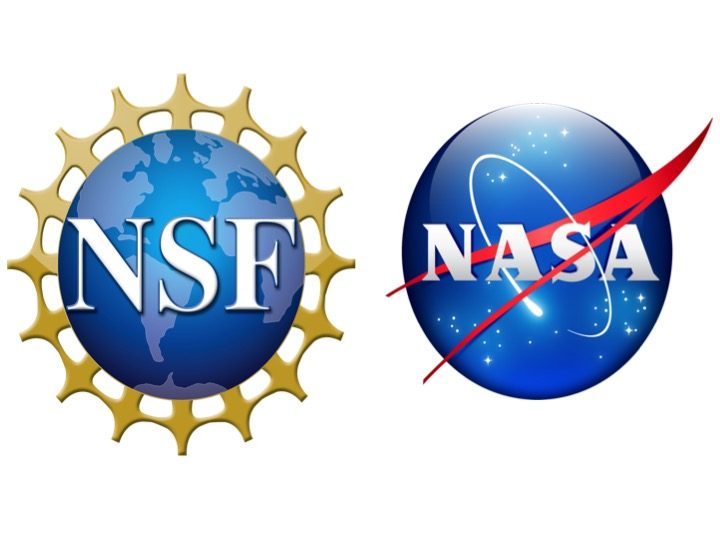
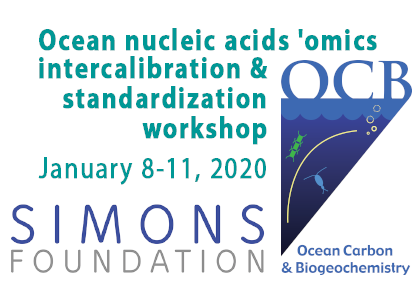
Agenda
Nucleic Acids ‘Omics Standardization and Intercalibration (S&I) Workshop
Thursday, January 9: Plenary Talks and Brainstorming
9:00 Welcome and introductions (Adrian Marchetti and Jaye Cable, UNC Chapel Hill)
Workshop goals and outcomes (Bethany Jenkins, URI)
Individual participant introductions
Plenary 1. Lessons learned from previous S&I efforts in the oceanographic community (Moderator: Bethany Jenkins, URI)
9:25 History and overview of GEOTRACES efforts to standardize and intercalibrate trace metal measurements (Alyson Santoro, UCSB)
9:40 History and overview of BioGEOTRACES (Paul Berube, MIT)
9:55 NIST efforts on S&I for microbiome research (Scott Jackson, NIST)
10:20 Q&A and discussion
10:30 Break
Plenary 2. Quantitative measurements in molecular data (Moderator: Adrian Marchetti, UNC Chapel Hill)
10:45 Amplicon sequencing S&I (Tatiana Rynearson, URI)
11:00 Prokaryotic Metagenomics & Metatranscriptomics S&I (Scott Gifford, UNC Chapel Hill)
11:15 Eukaryotic Metagenomics & Metatranscriptomics S&I (Andrew Allen, UCSD)
11:30 Development of internal/external standards for 'omics intercalibration (David Emerson, Bigelow)
11:45 Comparison of field sample collection methods and relationship to data output (Craig Carlson, UCSB)
12:00 Q&A and discussion
Plenary 3. The relationship of bioinformatics to S&I
12:10 Bioinformatics for assessing sample intercomparison (Harriet Alexander, WHOI)
12:30 Q&A and discussion
12:40-14:30 Lunch on your own
14:30 Group brainstorming exercise - Musical chairs for discussing critical issues for S&I (Moderator: Paul Berube, MIT)
14:30 Introduction to brainstorming exercise (Paul Berube, MIT)
14:40 10-minute brainstorming discussions (participants rotate through 5 topics in mixed groups)
- Sampling and Extraction (Facilitator: Alyson Santoro, UCSB)
- Amplicon Sequencing (Facilitator: Bethany Jenkins, URI)
- Standards and Mock Communities (Facilitator: Scott Gifford, UNC Chapel Hill)
- Community Intercalibration Issues, Cross-comparison, and Assessment of S&I (Facilitator: Paul Berube, MIT)
- Freeform Brainstorming (Facilitator: Adrian Marchetti, UNC Chapel Hill)
15:30 Break
15:45 Facilitators report out on discussions
16:15 Group discussion on critical S&I issues from pre-workshop solicited information and the musical chairs activity to identify:
- Key topics and methods that need to be addressed in the workshop
- Priority list of topics
17:30–18:30 Welcome Reception (TRU Deli and Wine Bar - 114 Henderson St., Chapel Hill)
18:00–19:00 Organizing committee meeting
Friday, January 10: Small Group Discussions
9:00 Review of previous day and introduction to Day 2 (Organizing committee)
9:10 Presentation on BioGEOSCAPES, Metaproteomic Intercomparison, and CLIO (Mak Saito, WHOI)
9:30-11:30 Morning breakout sessions (DNA theme)
- Sampling and extraction for DNA
- Eukaryotic metagenomics
- Viral/Archaeal/Bacterial metagenomics
- Amplicon sequencing
11:30–12:30 Write-ups for morning breakout sessions
12:30–14:00 Lunch (catered in)
14:00–16:00 Afternoon breakout sessions (RNA theme)
- Sampling and extraction for RNA
- Eukaryotic metatranscriptomics
- Archaeal/Bacterial metatranscriptomics
- Viral metatranscriptomics
- Biases associated with library construction and sequencing platforms
- Bioinformatics
16:00–17:00 Write-ups for afternoon breakout sessions
17:00–18:00 Overview of key outcomes by facilitator from each breakout session
18:30–20:30 Workshop dinner (Tandem, 200 N Greensboro St #1a)
20:30–21:30 Organizing committee meeting
Saturday, January 11: Planning a Nucleic Acids ‘Omics S&I Activity
9:00 Review of previous day and introduction to Day 3 (Organizing committee)
9:15 Small group sticky note prioritization activity (for variables to include in intercalibration exercise)
9:45 Report back results
10:00–12:00 Small group discussions (5 groups) to design an intercalibration activity
Discussion topics
- Participants - how to engage participation and feedback
- Scope of activity
- Study sites/sample sources
- Variables to focus on
- Sequencing needs
- Potential funding sources
- Publicizing effort
12:00 Lunch (Catered in)
13:00 Groups present their intercalibration activities (~5 mins. each) and discussion
14:30-16:30 Small group discussions to flesh out different aspects of an intercalibration exercise
- Mock communities
- Sampling methods
- Variables to consider
16:30 Small groups report back
17:00 Group discussion
17:30 Adjourn
19:00 Working dinner (organizing committee only)
Summary/Description
This OCB activity is aimed at developing a focused marine microbial nucleic acid (na) 'omics intercomparison and intercalibration effort. Increasingly, field programs of relevance to the OCB community include major components that use high-throughput molecular barcoding, metagenomics, and transcriptomics (nucleic acid ‘omics or na'omics herein) to understand the functioning of prokaryotic and eukaryotic microbes in the ocean. Recent examples of these programs include integration of microbial sampling at ocean time-series sites, the EXPORTS field campaign, and the international BioGEOTRACES program, which couples these measurements with ocean chemistry in conjunction with GEOTRACES cruise sampling. A pressing challenge for both our community and the broader microbiome research community is the need for more standardization and intercalibration to facilitate comparison between na’omics data (Nayfach et al. Cell. 2016 Aug 25; 166(5): 1103–1116; Stulberg et al. Nature Microbiology 2016. Article number: 15015). These issues were highlighted as a critical need at a recent OCB-supported workshop held in November 2018 to discuss the next wave of potential international field programs (Biogeoscapes) that would tightly couple ocean chemistry sampling with na'omics measurements. To ensure the success of this and other such programs, we seek to bring together experts and stakeholders in a small workshop in order to identify a path towards na’omics standardization and intercalibration solutions.
We envision developing a series of recommendations around the following issues to be tested in future intercalibration activities.
- Sample biomass collection and nucleic acid preservation for downstream analysis
- Extraction protocols for nucleic acids
- Addition of standard reference material to nucleic acid isolation protocols
- Isolation methods unique to RNA
- Sequence library construction
- Considerations unique to barcoding methods
- Integration of bioinformatic considerations
Organizing Committee
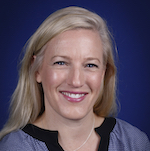
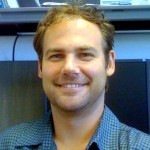
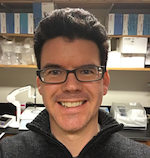
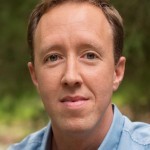
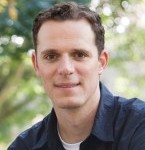
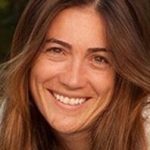
Bethany Jenkins - University of Rhode Island
Andrew Allen - University of California, San Diego and UCSD and the J. Craig Venter Institute
Paul Berube - Massachusetts Institute of Technology
Scott Gifford - University of North Carolina, Chapel Hill
Adrian Marchetti - University of North Carolina, Chapel Hill
Alyson Santoro - University of California, Santa Barbara

